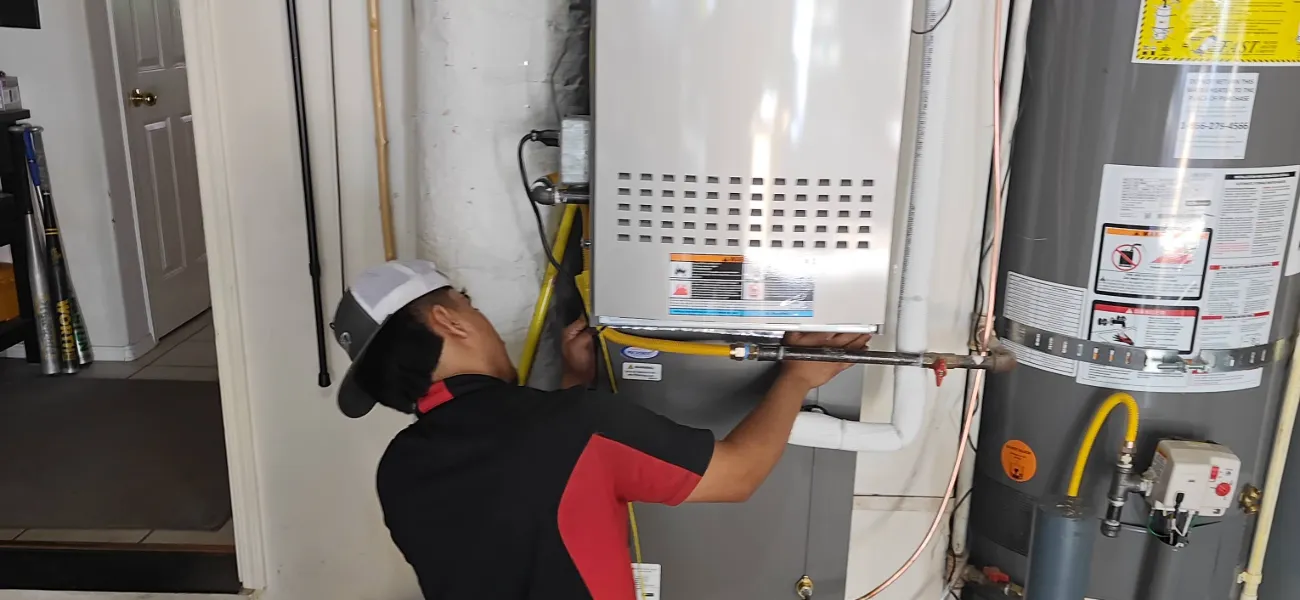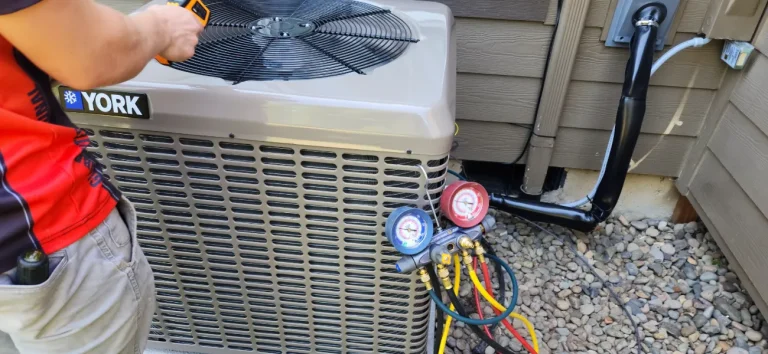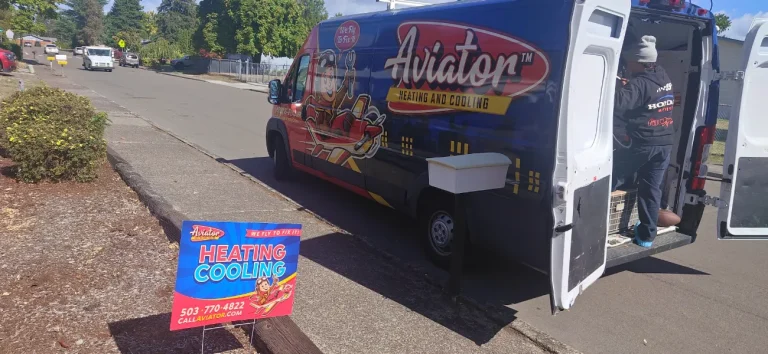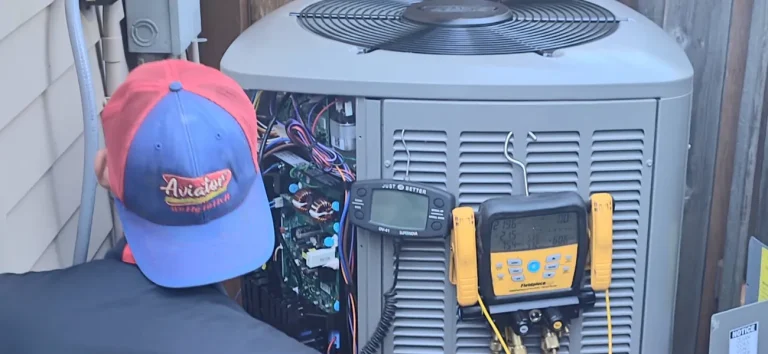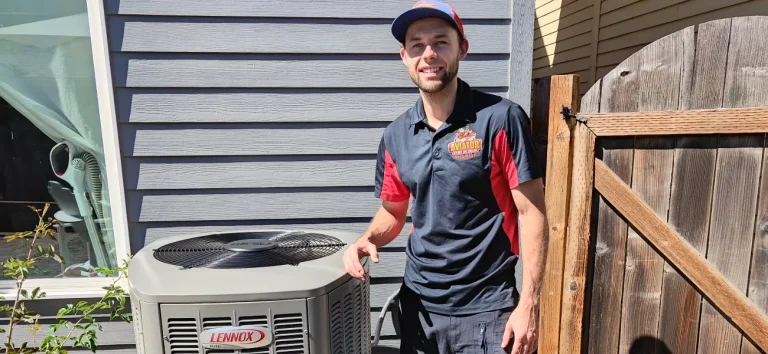Heat Pump vs. Furnace: Which Is Better for Oregon Winters?
As winter approaches in Oregon, homeowners often face the question of which heating system is best suited for their needs. With options like heat pumps and furnaces readily available, understanding how these systems perform in Oregon’s unique climate—characterized by wet, chilly winters and mild shoulder seasons—is essential for making the right choice.
In this blog, we’ll compare the benefits and drawbacks of heat pumps and furnaces, focusing on their efficiency, cost, and overall performance during Oregon’s winters. We’ll also explore hybrid systems, which combine the strengths of both heat pumps and furnaces, offering an energy-efficient and adaptable solution for the region’s variable weather.
Understanding the Basics: Heat Pump vs. Furnace
Before choosing the best heating system for your Oregon home, it’s important to understand how each type works.
Heat Pump: A heat pump is a versatile system that provides both heating and cooling. It operates by transferring heat instead of generating it. In winter, the heat pump extracts heat from the outdoor air—even in chilly temperatures—and transfers it into your home. During the summer, the process reverses, removing heat from your home and releasing it outside to keep your indoor spaces cool. Heat pumps are particularly effective in moderate climates like Oregon's, where winters are cold but not extreme.
Furnace: A furnace generates heat by burning fuel such as natural gas, oil, or propane or by using electricity. It distributes this heat throughout your home via ductwork. Furnaces are dedicated to heating, and a separate system, such as an air conditioner or heat pump, is typically required for cooling during the summer months. Furnaces excel in colder regions where a powerful heat source is needed to maintain comfort.
Both systems have distinct advantages, but their performance can vary depending on Oregon’s climate, which features wet, chilly winters and mild summers. Understanding how each system operates will help you make an informed decision for your home’s heating needs.
Heat Pump Performance in Oregon Winters
Efficiency of Heat Pumps
Heat pumps are a highly energy-efficient option for heating homes in Oregon, especially given the state’s typically mild winter climate. Unlike furnaces that generate heat by burning fuel, heat pumps transfer heat from the outdoor air into your home. This process is significantly more efficient, making heat pumps an excellent choice for areas with moderate temperature fluctuations.
Modern heat pumps boast high SEER (Seasonal Energy Efficiency Ratio) ratings for cooling and HSPF (Heating Seasonal Performance Factor) ratings for heating. An HSPF rating between 8 and 10 is considered very efficient and can help Oregon homeowners reduce energy costs during the state’s milder winter months.
However, heat pump efficiency may decline on the coldest days when temperatures drop below 30°F. While Oregon winters rarely experience prolonged extreme cold, during such periods, heat pumps have to work harder to extract heat from the air, which can reduce efficiency and lead to slightly higher electricity usage.
Pairing a heat pump with a backup heat source or considering a hybrid heating system can mitigate these issues, ensuring consistent comfort even during occasional cold snaps.
Heat Pump Pros:
-
- Energy-efficient in mild weather: A heat pump can offer 30-40% energy savings over a furnace in moderate winter temperatures.
- Year-round functionality: Heat pumps can cool your home in summer and heat it in winter, eliminating the need for a separate air conditioner.
- Environmentally friendly: Because heat pumps transfer heat rather than burn fossil fuels, they produce fewer greenhouse gas emissions, making them a greener option.
- Lower operational costs in moderate temperatures.
Heat Pump Cons:
-
- Less effective in extreme cold: In very cold temperatures, a heat pump’s efficiency drops significantly, and it may struggle to keep the home warm.
- Higher upfront cost: Heat pumps tend to be more expensive to purchase and install than traditional furnaces.
- Supplemental heating: In Oregon winters, homeowners often need to rely on supplemental heating—such as electric resistance heaters—to help the heat pump meet the demand for warmth, leading to higher electricity bills.
Furnace Performance in Oregon Winters
Furnaces are designed to generate heat, making them an excellent option for colder climates like Oregon's, where winter temperatures can sometimes hover in the low 30s. Furnaces measure their efficiency using AFUE (Annual Fuel Utilization Efficiency), which represents the percentage of fuel a furnace converts into usable heat.
-
- Older Furnaces: Typically have an AFUE rating of 65-75%, meaning 25-35% of the energy is lost during operation.
- Modern High-Efficiency Furnaces: Boast AFUE ratings of 90-98%, making them highly effective at converting fuel into heat while minimizing energy waste.
Natural gas-powered furnaces are particularly efficient and reliable in Oregon’s winter climate, providing consistent warmth even during freezing temperatures.
Furnace Pros
-
- Highly Efficient in Cold Weather: Furnaces perform exceptionally well in colder temperatures, providing steady and reliable heat during Oregon’s winter months.
- Lower Initial Cost: Furnaces are generally less expensive to purchase and install compared to heat pumps.
- Fuel Versatility: Homeowners can choose from natural gas, propane, oil, or electric furnaces, depending on local fuel availability and preferences.
- Long Lifespan: With proper maintenance, furnaces can last 15-20 years, often longer than heat pumps.
Furnace Cons
-
- Requires a Separate Cooling System: Furnaces are designed only for heating, so a separate air conditioner or heat pump is necessary for summer cooling.
- Higher Costs in Mild Weather: During Oregon’s milder shoulder seasons (spring and fall), furnaces can be less cost-effective than heat pumps.
- Environmental Impact: Burning fossil fuels like natural gas or oil produces greenhouse gases, making furnaces less environmentally friendly compared to heat pumps.
Furnaces are a dependable choice for homeowners in Oregon, offering powerful heating capabilities and long-term reliability. For areas with occasional freezing temperatures, a modern high-efficiency furnace is an excellent solution to keep your home warm and comfortable. Contact Aviator Heating & Cooling to learn more about our furnace installation and repair services!
Cost Comparison: Heat Pump vs. Furnace
Upfront Costs
-
- Heat Pump: The upfront cost of a heat pump system is generally higher than a furnace, especially if you're installing a dual-purpose heat pump that handles both heating and cooling. Installing a heat pump can cost anywhere from $3,500 to $8,000 depending on the system and the size of your home.
- Furnace: A furnace typically has a lower upfront cost, ranging from $2,000 to $5,000, depending on the type (gas, electric, or oil) and efficiency level.
Operational Costs
-
- Heat Pump: The operational costs of a heat pump vary depending on the temperature. During mild weather, the system can save you money on heating bills. However, as temperatures drop and the heat pump becomes less efficient, supplemental heating costs can add up, especially with rising electricity prices.
- Furnace: Furnaces, especially natural gas models, tend to have lower operational costs in the winter since natural gas is typically more affordable than electricity. Furnaces can maintain low operational costs even when the temperature drops significantly, making them a cost-effective option during Oregon’s coldest months.
Introducing Hybrid Systems: The Best of Both Worlds
For Oregon homeowners seeking a balance between efficiency and performance, a hybrid heating system may be the perfect solution. Hybrid systems, also known as dual-fuel systems, combine a heat pump with a furnace to provide optimal heating and cooling year-round.
How a Hybrid System Works:
A hybrid system uses a heat pump as the primary source of heating during milder weather. When the temperature drops too low for the heat pump to operate efficiently, the system automatically switches to the furnace. This allows homeowners to enjoy the efficiency of a heat pump when it’s warmer and the power of a furnace when it’s colder.
Benefits of a Hybrid System:
-
- Energy savings: Hybrid systems can help you save money by relying on the heat pump during the shoulder seasons when it's more efficient and switching to the furnace only when necessary.
- Year-round comfort: Hybrid systems offer efficient cooling during the summer and optimal heating in the winter, eliminating the need for separate systems.
- Best of both worlds: Homeowners in Oregon get the efficiency of a heat pump during mild temperatures and the reliability of a furnace during extreme cold.
Which Heating System Is Best for Oregon Winters?
Choosing between a heat pump and a furnace depends on your specific heating needs, budget, and Oregon’s climate. With chilly, wet winters and mild summers, selecting the right system ensures year-round comfort and energy efficiency.
- Heat Pump: If you value energy efficiency and need a system that provides both heating and cooling, a heat pump is an excellent choice for Oregon. Modern heat pumps are designed to perform well even in colder temperatures, though their efficiency may decrease in freezing conditions. For most of Oregon’s mild winters, a heat pump can offer cost-effective heating while doubling as a cooling system in the summer.
- Furnace: For those seeking powerful and reliable heating during colder months, a natural gas furnace may be the better option. Furnaces are ideal for homes in areas that experience occasional freezing temperatures, providing consistent warmth regardless of how cold it gets outside. However, a separate cooling system will be needed for summer comfort.
- Hybrid System: A hybrid heating system combines the efficiency of a heat pump with the reliable performance of a furnace. This setup allows you to use the heat pump during milder days and switch to the furnace when temperatures drop. It’s a perfect solution for Oregon’s variable climate, offering both cost savings and dependable heating.
Making the Right Choice for Your Home
Oregon winters can range from chilly and damp to occasional freezing conditions. Choosing the best heating system for your home means understanding how each option performs in these conditions. Heat pumps provide energy efficiency during milder weather, while furnaces deliver robust warmth when temperatures plummet. For homeowners seeking a balance between cost-effectiveness and performance, a hybrid system offers the best of both worlds.
At Aviator Heating & Cooling, we specialize in installing and servicing heat pumps, furnaces, and hybrid systems for homes across Hillsboro, Beaverton, Lake Oswego, and the surrounding areas. Contact us today to find the perfect heating solution for your Oregon home!
Upgrade to a Hybrid HVAC System Today
Ready to improve your home’s energy efficiency and enjoy year-round comfort? Contact Aviator Heating & Cooling today for a consultation on hybrid heating and cooling systems. We proudly serve homeowners in Hillsboro, Portland, North Plains, Tigard, and surrounding areas. Let us help you find the perfect solution to keep your home comfortable in all seasons while saving on energy costs!
If you'd like to schedule an estimate install a hybrid heating system in your home please give us a call (503) 770-4822 or fill out our online estimate request form and we'll get right back to you.

